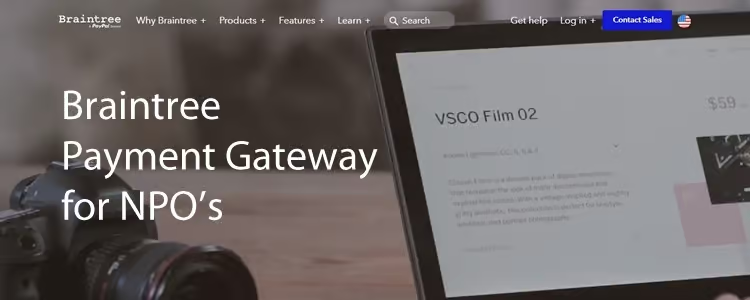Zoom hosts more than 3.3 trillion meeting minutes a year.1 That includes virtual events, donor briefings, training sessions, and team check-ins from organizations of every size. For non-profits, Zoom is often the go-to platform for staying connected. But with the right integrations and features, it can also be a powerful operations tool that saves time, reduces admin, and supports your outreach.

This guide walks you through which tools work best with Zoom and how to use them to build practical, automated systems that keep your team focused on mission-critical work.
What to Look for When Adding Tools to Zoom
Choosing the right setup means looking at more than just what’s popular. Before connecting apps to Zoom, think about the following:
- Does it reduce the workload? Good integrations replace repetitive tasks. That includes data entry, meeting follow-ups, and tracking attendance.
- Can it work with your existing systems? The best tools don’t work in isolation. They sync with your CRM, calendar, registration forms, or task managers to give you a clearer picture of your supporters and team activity.
- Is it easy to use? Your staff, volunteers, and board members are likely already stretched. Choose tools with low learning curves and familiar interfaces.
- Is it built to scale? Look for platforms that support larger teams, more events, or multiple user roles. Your needs may grow quickly.
- Is there a nonprofit discount? Plenty of providers offer discounted rates or even free access for nonprofits. These discounts can make a major difference to your budget.
Top Zoom Integrations for Non-Profit Teams
Communication and Collaboration
Clear communication is essential, especially when teams are remote or part-time.
- Google Calendar organizes meetings. It automatically creates Zoom links, avoids conflicts, and sends reminders. It also logs past meeting data, which can help track activity levels across teams.
- ClickUp connects meeting content to actual work. If your team holds a strategy session, ClickUp can turn the key takeaways into tasks with owners and deadlines. Its AI feature can even summarise the meeting and create follow-ups automatically.
- Slack brings meeting alerts and updates into shared chat channels. When Zoom links appear directly in Slack, your team doesn’t have to dig through emails or calendars. It also improves response time for last-minute changes.
Donor and Constituent Relationship Management
Nonprofits thrive on relationships. These integrations help you keep donor records and volunteer interactions current and accurate.
- Salesforce pairs well with Zoom Phone. Call records, meeting notes, and donor interactions are stored directly in the CRM. This allows your team to track conversations and follow up with clarity.
- HubSpot helps automate your early engagement process. For example, when someone fills out a donor interest form, HubSpot can automatically schedule a Zoom call for your team to connect with them. It also logs the interaction for future reference.
- Bloomerang, when connected through Zapier, captures Zoom event data and ties it back to individual supporter profiles. If someone attends a virtual fundraiser, that attendance can trigger a thank-you email, update their record, or mark them as a warm lead for future campaigns.
Event and Fundraising Tools
Running virtual events is much easier when Zoom works hand in hand with your event tools.
- Jotform allows you to build registration forms that feed directly into Zoom webinars. You can also include donation options in the same form. This reduces friction for attendees and helps you collect clean data from the start.
- Event.Gives overlays live fundraising tools on top of Zoom video. This means attendees can chat, bid on items, and donate in real time without leaving the event. It’s a strong option for auctions or campaign launches.
- Calendly simplifies scheduling by allowing supporters, donors, or volunteers to pick a time that works for them. Once booked, a Zoom link is created and shared automatically. This reduces back-and-forth and helps keep meetings on track.
Workflow Automation
Automation can reduce the hours your team spends on routine follow-ups and manual tracking.
- Zapier connects Zoom with thousands of other apps. You can use it to automate webinar registrations, send reminders, follow up with personalized emails, or even issue digital certificates after training sessions.
- Make.com gives you a visual way to build your own Zoom workflows. For example, you can automatically send recordings to attendees, update spreadsheets with participant data, or push meeting notes to a shared database. It’s a useful option if your organization works across many platforms.
- Zoom Workflow Automation is built directly into the platform. It can summarise meetings, post key takeaways in your team chat, and trigger other tasks such as creating a shared doc or logging a follow-up call. This is especially useful if you don’t want to manage yet another app.
Don’t Overlook Zoom’s Built-In Capabilities
Zoom already includes a number of features that many teams underuse. These can make a noticeable difference, even without any add-ons.
- AI Companion helps create meeting summaries, highlight key decisions, and distribute notes across your team. This reduces the need for separate note-taking and ensures that action items are not missed.
- Cloud recordings allow you to save sessions for future use. This is especially valuable for volunteer onboarding, internal training, or compliance meetings. It also helps preserve knowledge if staff or board members transition out of the organization.
- Breakout rooms are ideal for smaller group discussions during larger events. Whether you’re running a volunteer training session or a strategic planning retreat, this feature lets people engage more deeply in smaller groups.
- Zoom Webinars support large-scale public events, including panel discussions, fundraisers, and information sessions. You can manage registrations, run Q&A sessions, and collect data on engagement to help with reporting and follow-up.
Client Spotlight: Using a WordPress Plugin to Manage Zoom Events
One nonprofit we supported, the American Monetary Institute (AMI), needed a better way to manage recurring Zoom-based events directly from their website. Rather than relying on external tools or switching between Zoom and email manually, we integrated the Video Conferencing with Zoom plugin into their WordPress site.
This plugin allowed AMI to create and manage Zoom events entirely from the WordPress backend. Staff could set up new events with custom content, speaker bios, and event timing without logging into Zoom each time. The system synced with Zoom in the background, so the experience remained seamless for both organisers and attendees.
Key Features
- Centralised event management: Admins could create, update, and display event pages directly within WordPress. Each event included full Zoom controls, including passcodes, time zones, and recurring schedules.
- Speaker listings and countdown timers: Visitors could view a list of confirmed speakers and see exactly when the next session would start.
- Built-in registration and reminders: Attendees signed up through a simple form on the event page. Once registered, they automatically received confirmation emails, Zoom meeting links, and calendar invites.
- Donation collection: The plugin worked with GiveWP to let attendees submit a donation while registering. AMI set a default suggested donation of $35, but supporters could adjust the amount based on their preference. Donations went directly to the organisation’s PayPal account.
- Calendar sync: Events were automatically added to participants’ Google Calendars, making it easier for supporters to plan ahead and join on time.
The plugin costs around $39.99 for a single site (billed once per year until cancelled)2, making it a low-cost option for nonprofits already using WordPress. For AMI, this setup removed the need to jump between platforms and gave them greater control over how they promoted, managed, and monetised their events.
This example shows how a single tool, when thoughtfully integrated, can reduce friction, save time, and make virtual engagement feel more professional and manageable.
Get the Most from Non-Profit Discounts
The platforms mentioned above offer meaningful discounts for nonprofits. Some examples:
| Tool | Discount Available |
| Zoom | Up to 50% off through TechSoup |
| Zapier | 15% discount for nonprofits |
| Make.com | Free Teams Pro license (1 year) |
| Jotform | 50% off on paid plans |
| ClickUp | Up to 35% off or free for small orgs |
| BoardSpot | 10–90% off based on revenue |
| Bloomerang | Non-profit-first pricing model |
Take time to apply for these. They make it possible to use advanced systems without stretching your budget.
Final Thoughts
With the right setup, Zoom becomes more than a communication tool. With the right integrations and features, it can evolve from a simple meeting platform into a central hub for managing operations, connecting with supporters, and running events seamlessly.
You don’t need to overhaul everything at once. Start by automating one step in your event process or connecting Zoom to your CRM. From there, build the workflows that give your team more space to focus on the work that matters most.
Let your tech do more of the heavy lifting so your people can keep driving impact.
References
- Kumar, Naveen. “Zoom User Statistics 2025 — Market Share & Revenue.” DemandSage, 2 Jan. 2025.
- Codemanas. “Video Conferencing With Zoom Pro – Codemanas Solutions.” Codemanas Solutions, 16 June 2025, www.codemanas.com/downloads/video-conferencing-with-zoom-pro.


